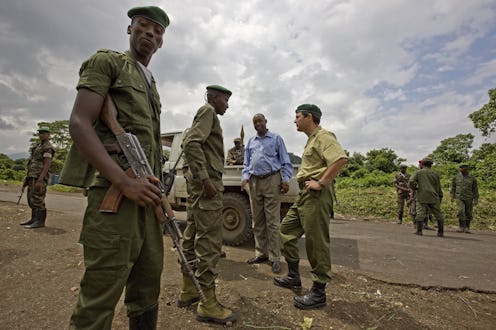News
M23 Rebel Group Surrenders in Congo
A leading rebel group in the Democratic Republic of Congo has agreed to put down arms and participate in a political solution for the country. The group, M23, had been fighting in the country’s eastern regions for the past 20 months, but government forces had recently seized two of its strongholds. Bertrand Bisimwa, the leader of the rebel group, said Tuesday: “The chief of general staff and the commanders of all major units are requested to prepare troops for disarmament, demobilization and reintegration on terms to be agreed with the government of Congo.” Like all good 21st-century rebels, Bisimwa made the announcement via Facebook.
The surrender comes after a statement by African leaders Monday, urging M23 to make a “public declaration renouncing rebellion.” Now, the government will have to accept their peace offering, and the two sides will sign a peace agreement. The deal reportedly includes amnesty for many involved in the rebellion.
The country has been plagued by conflict for over a decade, due to ethnic tensions as well as competition for natural resources. Congo is rich in gold, copper, and cobalt, and holds many untapped deposits of the minerals. The M23, which sought control over mineral trade, is reportedly made up largely of Tutsis — the same ethnic group as the one to which the leaders of Rwanda, the Congo's next-door neighbor, belong to. This has fueled suspicion that the Rwandan regime is supporting the rebels, a charge they have denied. Nonetheless, the United States cut aid to Rwanda over concerns that they did back the rebels.
Former U.S. Senator Russ Feingold is the U.S. special envoy to the Great Lakes region. “In a region that has suffered so much, this is obviously a significant positive step in the right direction,” he said, while also urging that those who committed serious crimes not be included in the amnesty agreement.
Of course, Congo's rebel problems are far from over. The government has said its next target will be the FDLR, a rebel group made up of Rwandan ethnic Hutus. The FDLR group opposes the Tutsi dominance in the region. According to Martin Cobler, the leader of the United Nations peacekeeping force in Congo, the UN's 3,000-strong intervention brigade will now turn its attention to the smaller groups. “We have teeth, and we are using those teeth,” he said.
